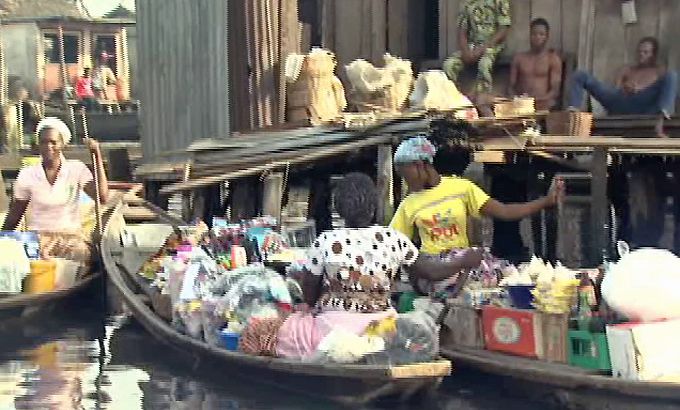Nigeria forces thousands from floating slum
Government defends its decision to forcibly evict the almost 200-year-old Makoko shantytown built on lagoon in Lagos.

Thousands of people have been left homeless in the Nigerian city of Lagos after a recent government-led eviction of an almost 200-year old shantytown.
During last week’s eviction of the Makoko slum, home to about 100,000 people, residents were given only 72 hours to evacuate before men in speedboats were sent to destroy their houses.
“As the city authorities continue to forcefully evict this community of mainly fishermen, many say there have nowhere to turn to,” said Al Jazeera’s Mohammed Adow, reporting from Lagos on Sunday.
The floating Makoko slum rises out of the murky lagoon water that separates mainland Nigeria from the island that gave birth to its largest city.
|
“We are just trying to survive… This is unfair, we are human beings. How do you just throw out people without warning?” – Makoko resident Mirabelle Agbete |
According to reports, men armed with machetes and power saws descended on the shantytown to demolish it, leaving some 3,000 people homeless.
Adow said that with their houses demolished, many families were now left living on boats or seeking refuge in churches.
“The government is treating these people as though they were not human,” Felix Morka, a rights activist at the Social and Economic Rights Action Centre in Lagos, which works with Makoko residents, told Al Jazeera.
“It’s very condescending of the government to contemplate displacing nearly 150,000 people without any discussion or notice. That is wrong,” he said.
Violence sparked
Nigeria’s government insists it has done nothing wrong.
Lateef Raji, an adviser to the governor of Lagos State, told Al Jazeera: “Let us look at how these people live. Is there any reasonable society that would allow its citizens to live the way they are living?”
Makoko resident Mirabelle Agbete said: “We are just trying to survive… This is unfair, we are human beings. How do you just throw out people without warning?”
The continued unease around the evictions has already sparked violence.
On Saturday, trouble started when authorities tried to demolish a building after officials reached an informal agreement about how they would target homes for destruction.
A police officer shot dead community chief Timothy Hunpoyanwha, residents have said.
Ngozi Braide, Lagos state spokeswoman, said a police corporal had been arrested over the fatal shooting, which remains under investigation. The killing prompted Babatunde Raji Fashola, Lagos state governor, to order a stop to the demolition exercise.
Fashola also said he was willing to speak with the communities to reach a compromise, but said Makoko would not be allowed to grow any further.
A government notice issued about the evictions seems to suggest it wants the entire community gone.
“The Lagos state government is desirous of restoring the amenity and value of the waterfront… [and] improve the waterfront/coastline to underline the megacity status of the state,” the notice read.
‘Integral part’
Makoko is a sprawling community of bamboo homes and shacks built out of driftwood, close to the University of Lagos campus and visible to daily traffic that plies the Third Mainland Bridge, the link from the mainland to the city’s islands.
Those living in Makoko subsist largely as fishermen and workers in nearby saw mills, cutting up water-logged timber that’s floated into the city daily.
Some residents work jobs outside of the slum as gate guards and in other industries, although most live almost entirely within its watery boundaries.
“For almost 200 years Makoko has remained an integral part of the city of Lagos, its uniqueness often a symbol of Nigeria’s ever growing problem of urban poverty,” our correspondent said.
The people of Makoko have created their own life independent from the state, with its own schools and clinics, however ill-equipped.
Commerce goes on in its creek alleyways. Children who attend classes in schools on the water learn in English and French and speak various languages from Nigeria and neighboring Benin.
Many residents in Makoko come from the French-speaking West African nation but have lived in the community for decades.
Waterfront villages remain common through Nigeria and Lagos itself grew out of one.